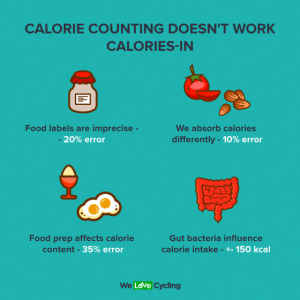Are carbs healthy? How many calories should a person eat daily? What should we eat? And what should we not consume? Victoria Papeskov spoke to Dr Margit Slimakova, specialist in prevention and nutrition to list down the most common misconceptions about food.
1. Calorie intake is responsible for a healthy body
No! Humans are created in a simple way: we are hungry- we should eat, we are thirsty- we should drink. And we should do it as much as we feel like.
Instead of counting every calorie in your bowl of rice or keeping track of every ml you drink, focus on eating the right type of food- without worrying about quantity. Find out what we mean by right food in this interview of PharmDr Margit Slimakova.

2. Fats are evil!
No! Fats are not the issue- saturated or unsaturated. What actually harms us is the combination of SUGAR + FAT. Why?
Consuming sugar increases insulin. And insulin is used to store fats in our body. The same goes for being stressed and the subsequent release of the stress hormone cortisol, which stimulates insulin release. These two factors, combined with fats harm the body. Fats cannot do anything harmful to our body on their own.

The solution? Consume less sugars and only in their natural forms- fruits, grains, etc. Also, try to live a balanced life, free of stress!
3. Eating low fat yogurt prevents obesity.
No! Low-fat yogurt is processed, and therefore it does more harm than full-fat yogurt. When it comes to dairy, it is advised to consume fermented, sour dairy products, full fat yogurt, etc. This ensures that our food is natural and chemicals- free.

Fermented food in general is absolutely vital for our gut micro-organisms. It ensures the presence of good nutrients and probiotics, and also contains vitamin K2 that is important for good bacteria in the gut.
For further information on nutrition, read our interview with Dr Margit Slimakova in which you can learn some easy practical steps to improving your daily diet.

